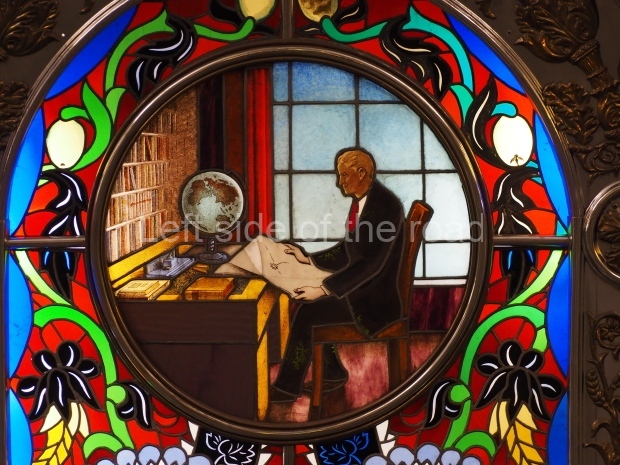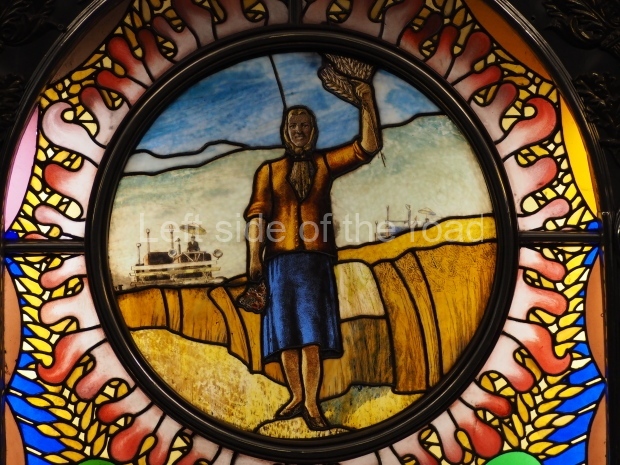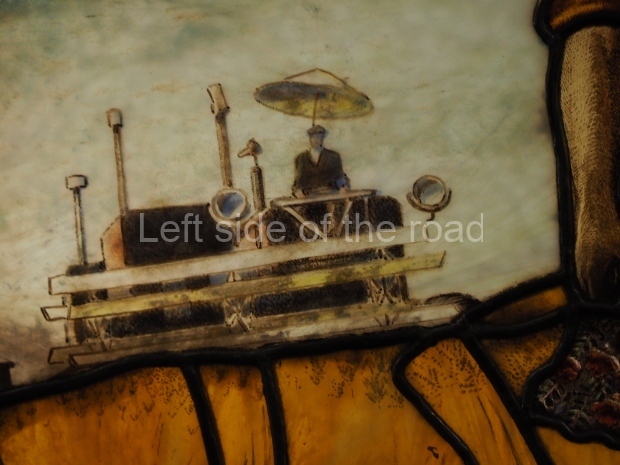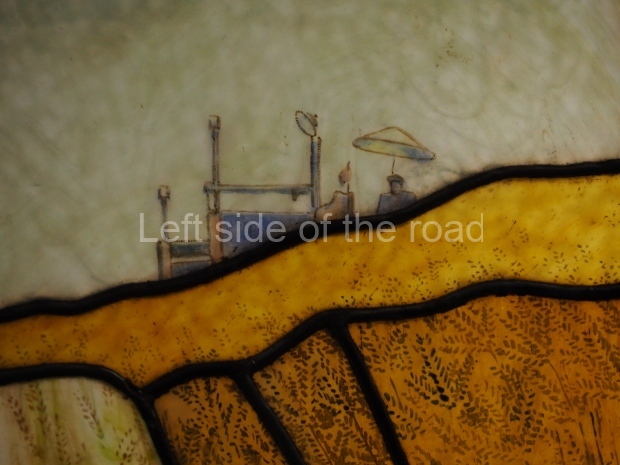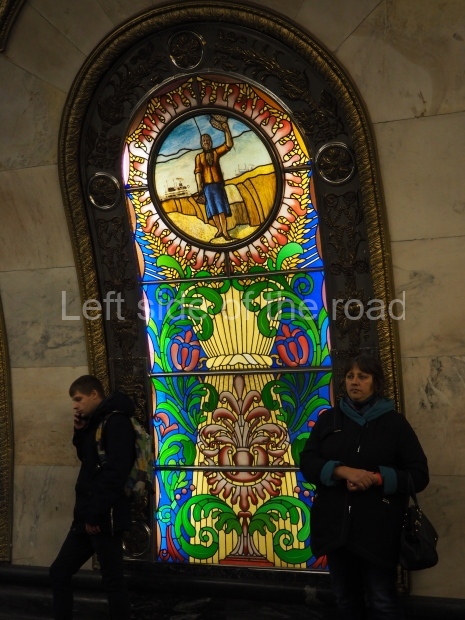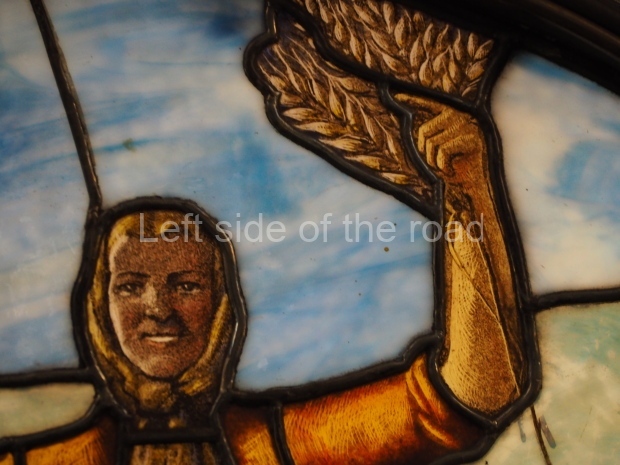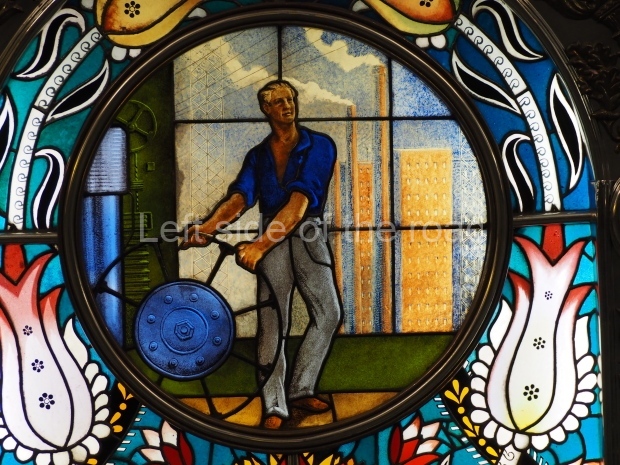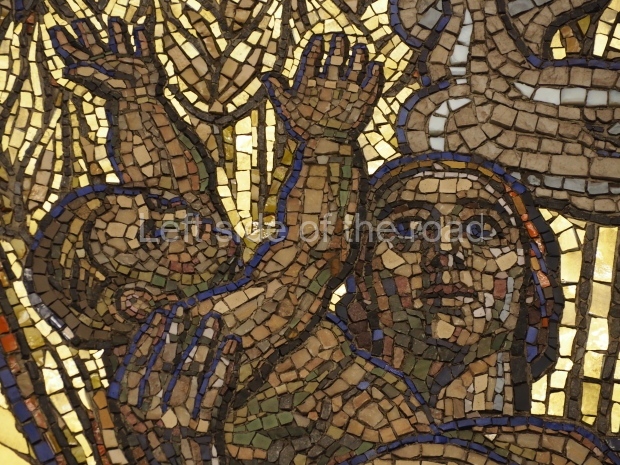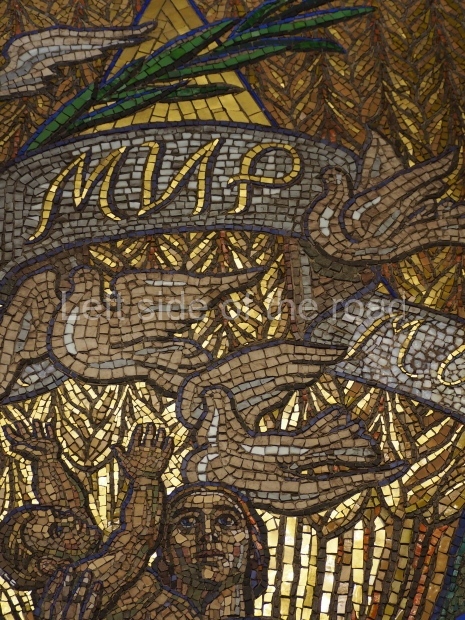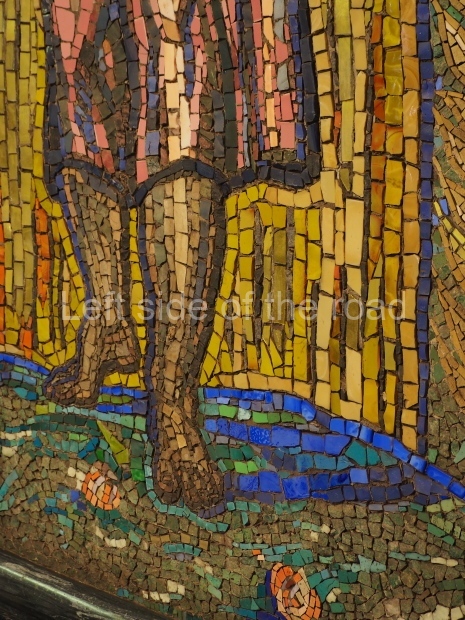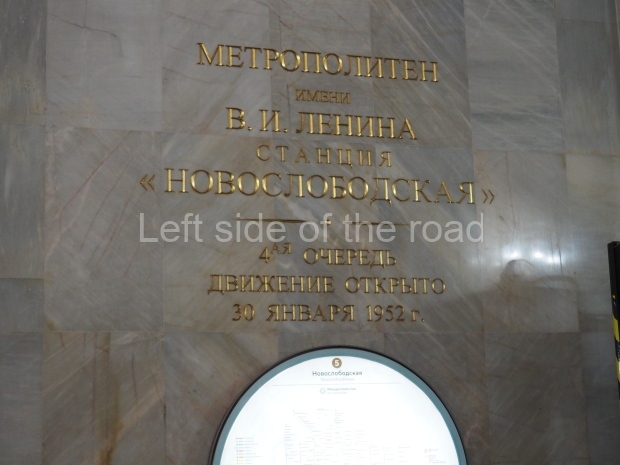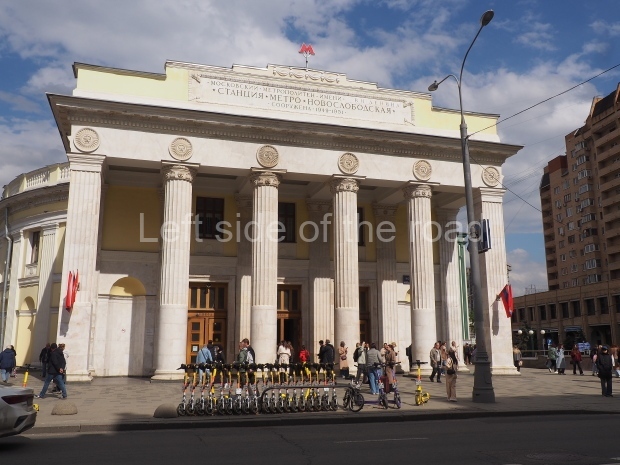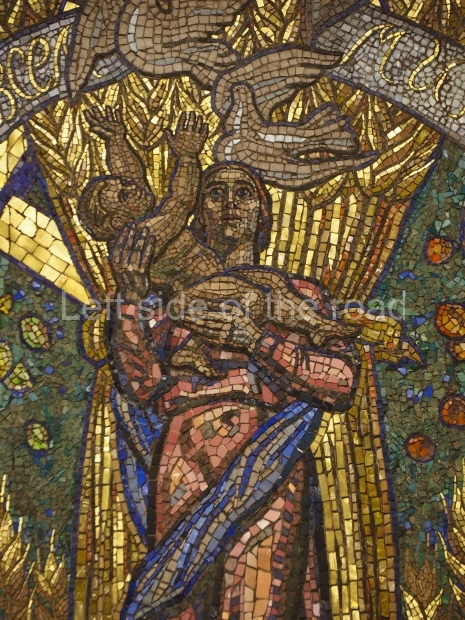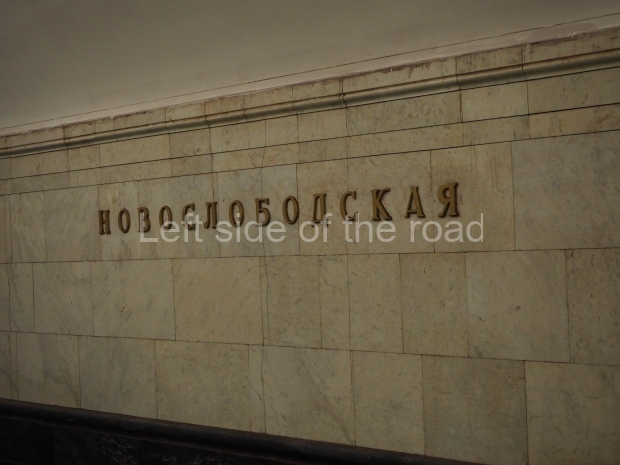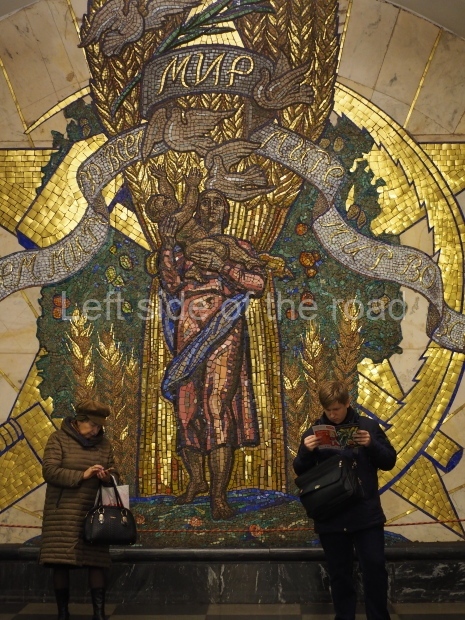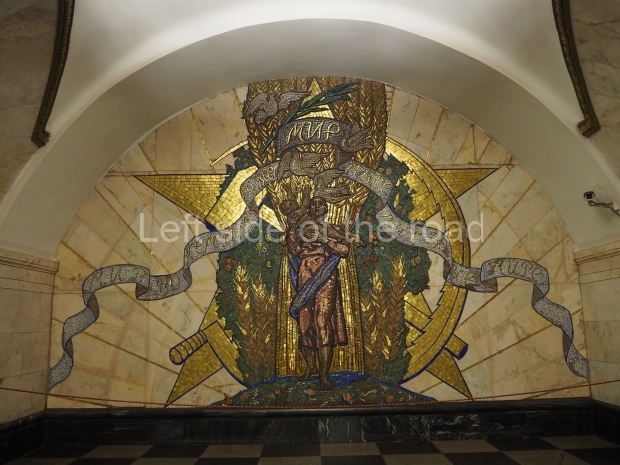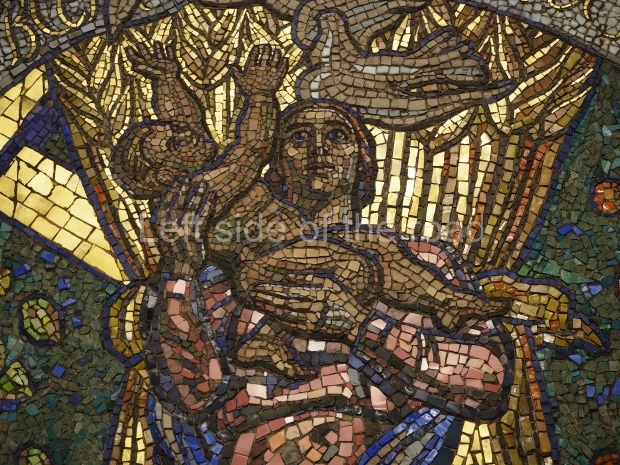Moscow Metro – a Socialist Realist Art Gallery
Moscow Metro – Novoslobodskaya – Line 5
Novoslobodskaya (Новослобо́дская) is a Moscow Metro station in the Tverskoy District of the Central Administrative Okrug, Moscow. It is on the Koltsevaya Line, between Belorusskaya and Prospekt Mira stations. Novoslobodskaya was opened on 30 January 1952. From 21 November 2020 to 4 March 2022, the entrance of the station is closed for reconstruction.
Alexey Dushkin, the station’s architect, has long wished to utilise stained glass in decoration of a metro station, and the first drawings date to pre–World War II times. In 1948, with the aid of a young architect Alexander Strelkov, Dushkin came across the renowned artist Pavel Korin, who agreed to compose the artworks for the panels. The rest of the station was designed around the glass panels. Dushkin, taking the standard pylon layout designed the overall impression to resemble that of underground crypt.
It is best known for its 32 stained glass panels, which are the work of Latvian artists E. Veylandan, E. Krests, and M. Ryskin. Each panel, surrounded by an elaborate brass border, is set into one of the station’s pylons and illuminated from within. Both the pylons and the pointed arches between them are faced with pinkish Ural marble and edged with brass molding. At the end of the platform is a mosaic by Pavel Korin entitled ‘Peace Throughout the World’. The stained glass panels, the mosaic, the brass trim, and the elegant conical chandeliers were all carefully cleaned and restored in 2003.
The vestibule is an imposing structure with a grand portico, located on the northeast corner of Novoslobodskaya and Seleznevskaya streets.
Text above from Wikipedia.
Novoslobodskaya
Date of opening;
30th January 1952
Construction of the station;
deep, pier, three-span
Architects of the underground part;
A. Dushkin and A. Strelkov
Transition to station Mendeleevskaya
The most striking element of the station decoration is stained-glass windows illuminated from within. It seems that such decoration of the station should make it slightly Gothic but no Gothic is there at all. There is an underground epic chamber with windows opening to Fairyland. The comparatively narrow pylons of the station widen upward, toward the hall and platforms, and gradually go into the vaults. The broad passes between the pylons are also arched. The connecting curve of the pass vaults and station vaults is decorated with golden cord in relief, which highlights the horseshoe-shaped arch. The same golden cord borders carinate arches above the horseshoe-shaped passes. It forms an arcade of kokoshniks in the central hall.
Latvian craftsmen in Riga by P. Korin’s cartoons manufactured stained-glass windows. Medieval Russia has no idea of stained glass windows. Hence Korin’s works are not stylization but the first works of the new Russian epic style of arts and crafts. There are fantastic flowers, growing from antique vases, cooing pigeons, florid ornaments. There are medallions in the upper part of each stained-glass window. Twenty six of them have geometric patterns and five-pointed ruby stars. Other six are devoted to the integrity of workers, peasants, and intellectuals. They are ‘Pianist’, ‘Painter’, ‘Power Engineer’, ‘Harvesting’ (pay attention to umbrellas over tractors), ‘Geographer’, and ‘Architect’. A stunning mosaic panel is on the blind end of the station – a woman with a child in her arms going toward onlookers by flourishing earth. The baby turns up his arms to pigeons flying toward banner ‘Peace Throughout the World!’ On the background, a huge five-pointed star, golden sickle and hammer rise over the planet as the sun.
The pylons, passes, walls, and passageways to the escalators are faced with light Ural marble, grey and yellow with dark inclusions, of the Karkodinskoye Deposit. The floor of the station is a chessboard made of plates of grey granite and black gabbro. The station is illuminated with chandeliers along with illuminated stained-glass windows.
Text from Moscow Metro 1935-2005, p84
Location:
GPS:
55.7799°N
37.6028°E
Depth:
40 metres (130 ft)
Opened:
30 January 1952

















